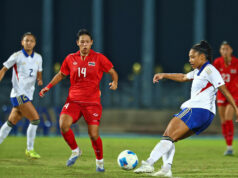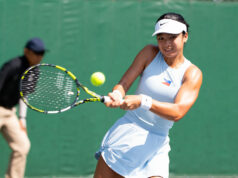“Frustration” was how DeMar DeRozan described what made him throw the ball near referee Scott Foster a little more than halfway through the final quarter of the Spurs’ homestand yesterday. He had just been called for an offensive foul, his third personal in a span of 52 seconds and fourth overall, and he needed to vent after drawing what he believed to be the short end of the stick. No doubt, his emotions were likewise fired up by a double-digit deficit they incurred off an atrocious showing after the half. Unfortunately, he flung the rock a little too forcefully for comfort, leading to his ejection.
That the Spurs could have benefited from DeRozan’s presence in the last five minutes and one second of the set-to they ultimately lost is an understatement. True, they weren’t exactly humming after a superb first quarter in which they made 13 of 19 shots. And true, the 12-point hole they were in at the beginning of the payoff period ballooned to 19 by the time he was forced to hit the showers. But for all his frailties, he was the fulcrum of their offense and crucial to their competitiveness — especially with Game Three Star Derrick White crashing back to earth.
The Spurs aren’t known to delve in moral victories, so they’ll no doubt look back to yesterday’s outing as a lost opportunity. Their Game Two setback was worse, to be sure; they appeared to have control until the Nuggets mounted a late comeback courtesy of Jamal Murray. In any case, they can’t afford to keep wasting opportunities, not against the stacked Nuggets, and not when their style of play doesn’t intrinsically lend to production efficiency. So, yes, their capacity to hit the ground running is a boon. But, yes, their inability to consistently translate their first-mover advantages into actual triumphs is a bane.
Looking ahead, the Spurs need to do a better job protecting the three-point line. In the last three contests, they’ve allowed the Nuggets to make 40 of 84 attempts from beyond the arc — an ingredient for disaster given their lack of personnel capable of doing the same. And because they’re not about to get another breakout performance from an unlikely source to help their cause, they would do well to remind their vital cogs of the importance of composure. The job’s hard enough for them at full complement; it becomes decidedly Sisyphean when they make their own selves their worst enemies. Self-inflicted wounds are a no-no. Bad calls will happen, and it’s not how they react immediately after that will determine their fate. It’s how they don’t.
Anthony L. Cuaycong has been writing Courtside since BusinessWorld introduced a Sports section in 1994. He is the Senior Vice-President and General Manager of Basic Energy Corp.



